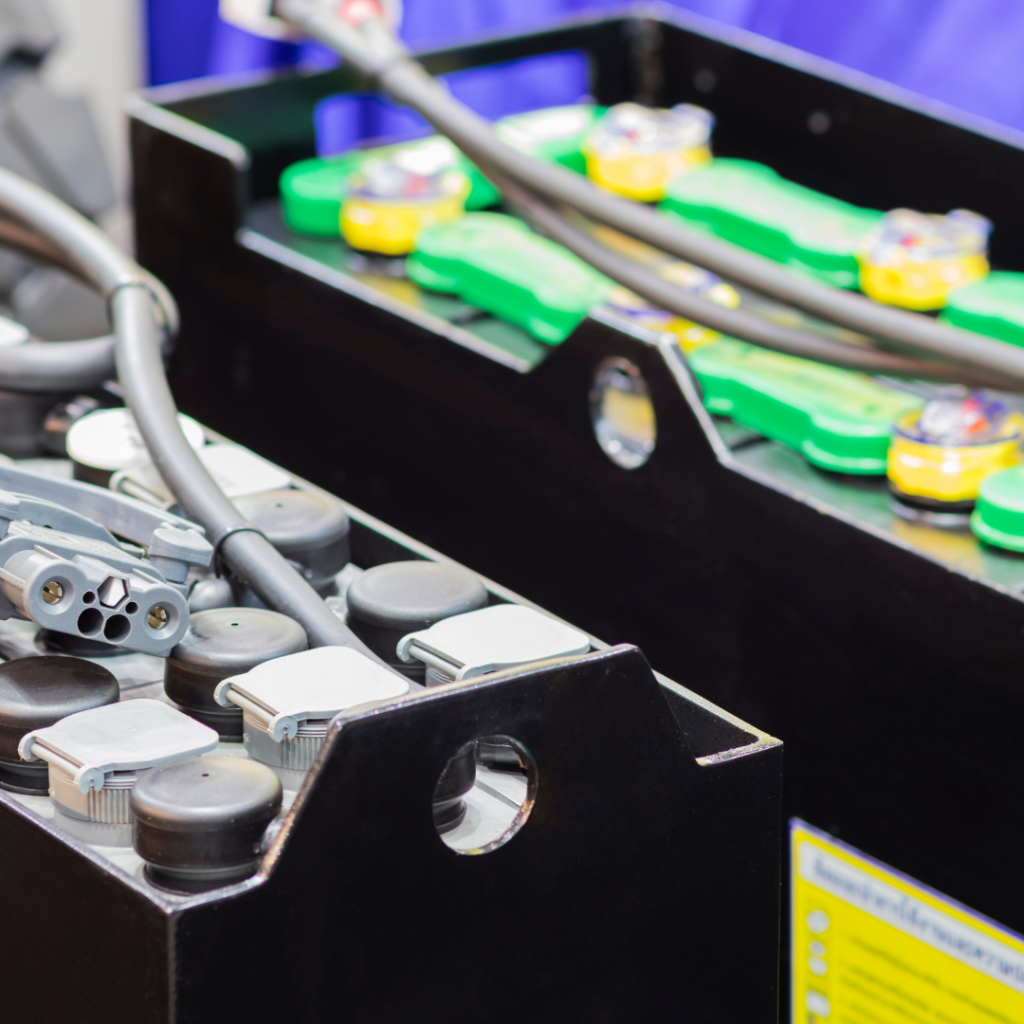
In the dynamic world of material handling, the choice of battery for your forklift can significantly impact performance, efficiency, and operational costs. Lithium-Ion (Li-ion) and Lead-Acid batteries emerge as formidable contenders, each with its set of advantages and considerations. Let’s delve into the intricacies of these power sources to help you make an informed decision for your forklift fleet.
1. Energy Density and Weight:
- Lithium-Ion: Li-ion batteries lead the charge in energy density. They pack more power into a compact space, resulting in a lighter overall weight. This feature enhances forklift agility and contributes to better weight distribution.
- Lead-Acid: While reliable, Lead-Acid batteries are bulkier and heavier. This weight can impact forklift manoeuvrability and has implications for the overall design of the vehicle.
2. Charging Speed and Downtime:
- Lithium-Ion: Li-ion batteries shine in rapid charging capabilities. Forklifts equipped with Li-ion batteries experience shorter charging times, reducing downtime and ensuring a more seamless workflow.
- Lead-Acid: Charging Lead-Acid batteries takes longer, potentially leading to extended breaks in operations. Managing charging schedules becomes crucial to maintain a continuous material handling flow.
3. Lifespan and Total Cost of Ownership:
- Lithium-Ion: Li-ion batteries generally boast a longer lifespan, enduring more charge cycles. While the initial investment is higher, the reduced need for replacements and maintenance contributes to a lower total cost of ownership over time.
- Lead-Acid: Lead-Acid batteries have a limited lifespan and may require more frequent replacements. However, their upfront cost is lower, making them an attractive option for businesses with budget constraints.
4. Maintenance Requirements:
- Lithium-Ion: Li-ion batteries are virtually maintenance-free. They eliminate the need for tasks like watering and specific gravity checks, streamlining operational processes and minimising labor costs.
- Lead-Acid: Lead-Acid batteries require regular maintenance, including monitoring water levels, checking electrolyte levels, and cleaning terminals. This maintenance can result in additional operational expenses.
5. Environmental Impact:
- Lithium-Ion: Li-ion batteries are considered more environmentally friendly. They contain fewer toxic materials and are easier to recycle, aligning with sustainability goals.
- Lead-Acid: Lead-Acid batteries pose environmental concerns due to the lead content. Proper disposal and recycling practices are essential to mitigate their impact on the environment.
In conclusion, the choice between Lithium-Ion and Lead-Acid batteries for forklifts depends on the specific needs and priorities of your operation. While Li-ion batteries excel in terms of energy density, rapid charging, and reduced maintenance, Lead-Acid batteries may still be a viable option for businesses prioritising upfront cost savings.
Understanding these nuances allows you to tailor your forklift fleet to your unique operational requirements, optimising efficiency and productivity. As technology continues to advance, embracing the right power source ensures that your forklifts remain at the forefront of innovation in the ever-evolving landscape of material handling.
